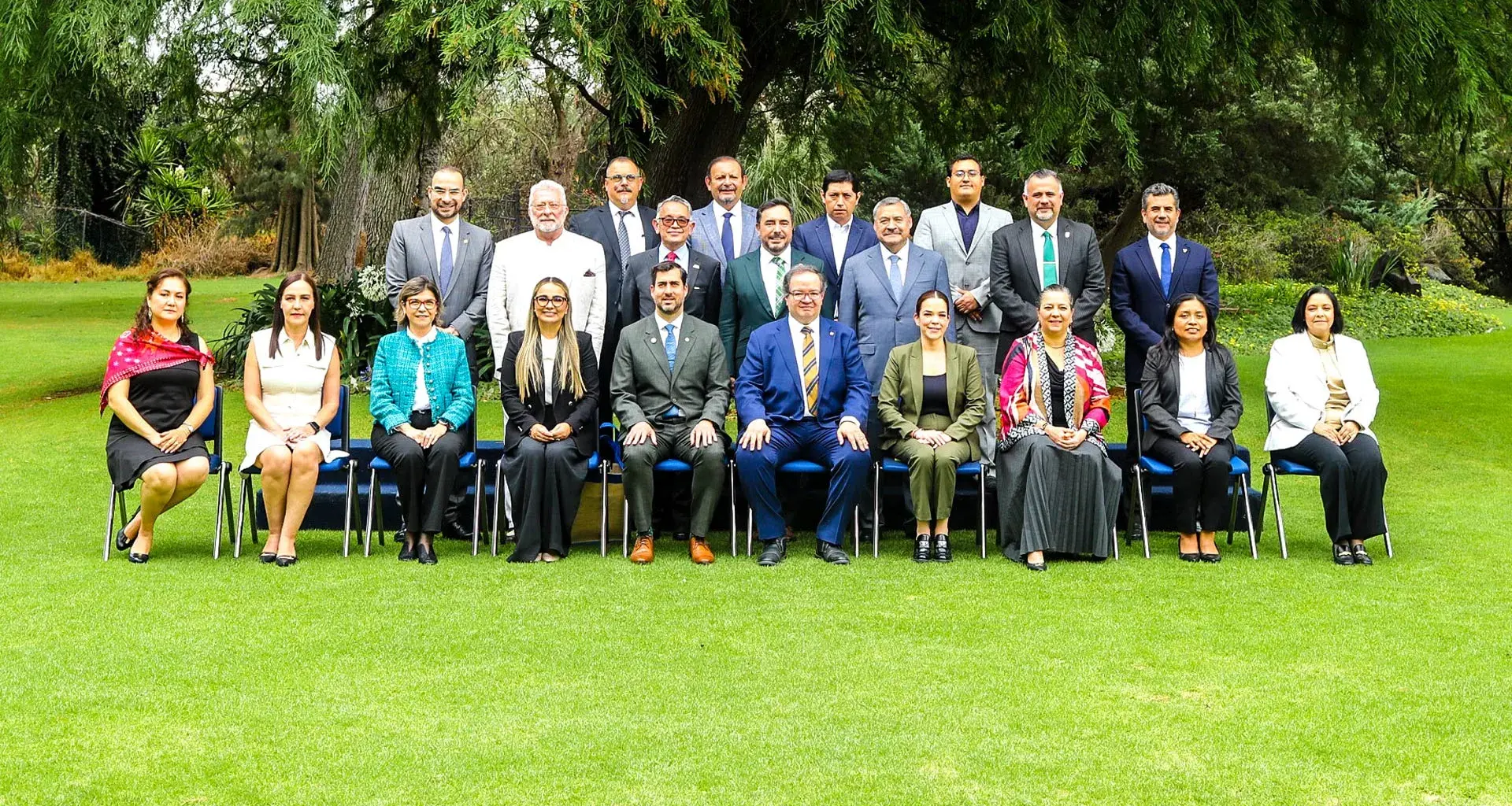21 public and private Mexican universities have signed a joint declaration on tackling the global climate crisis with the aim of coordinating steps taken in higher education to combat this issue responsibly and urgently.
It was signed during the Mexican Universities for Climate Action Rectors’ Summit hosted by the National Autonomous University of Mexico (UNAM) and Tecnológico de Monterrey.
In the document, these institutions promise to reduce their carbon footprint, adapt their campuses or schools to emerging environmental risks, and produce graduates capable of spearheading sustainable solutions through science, innovation, and public policy.
They also announced the creation of the Mexican Network of Universities for Climate Action, an alliance that seeks to implement inclusive policies and transition towards a fairer, more resilient, and sustainable future.
The Rectors’ Summit declaration was issued at Ciudad Universitaria in Mexico City on May 26.
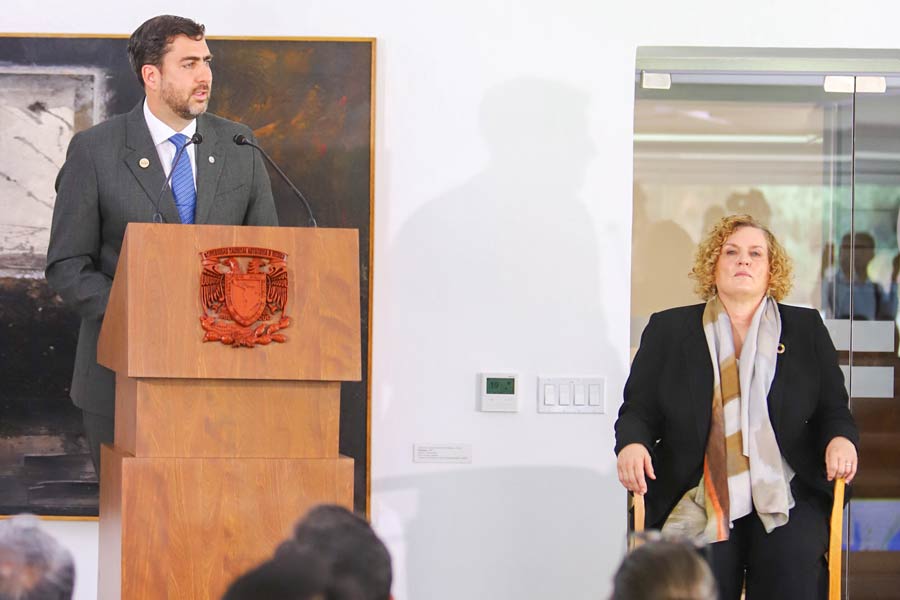
From awareness to action
At the event opening, Rector of Tec de Monterrey Juan Pablo Murra spoke of the need to move from awareness to action.
“For over 30 or 40 years, we’ve been warning people about environmental and climate crises and the effects they were going to have and are now having, but it hasn’t been enough to trigger actions of the caliber and type that the situation requires.”
According to the rector of the Tec, the solution is not to go back but to move forward through innovation.
“We have to be true innovators to develop public policies, practices, and a perspective on consumption and our economic model.”
Despite the outlook, the rector concluded his address with a message of hope:
“If those of us who are gathered here don’t believe in a better future, we won’t even try to come up with solutions. Hope stems from seeing what my colleagues are doing so passionately in many areas.”
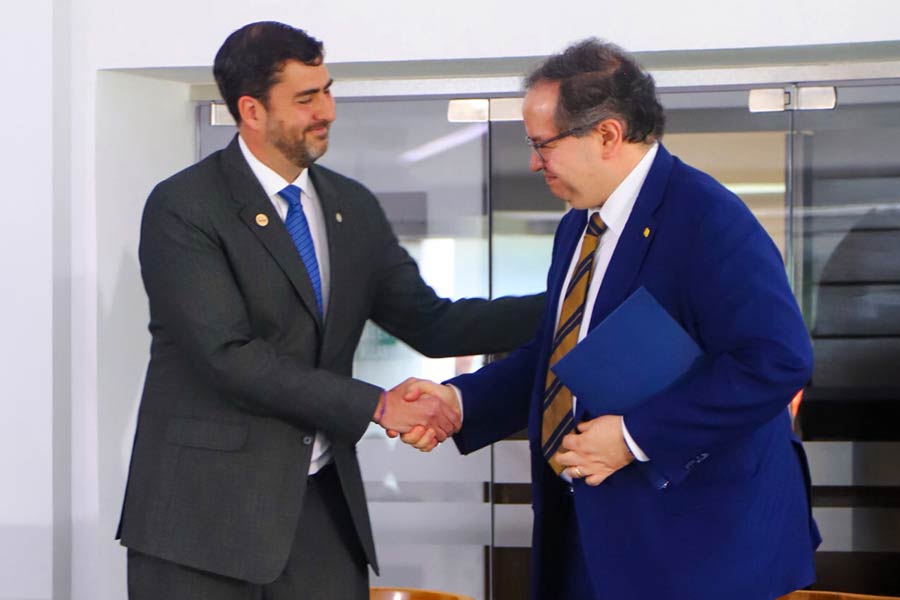
Leonardo Lomelí, Rector of the UNAM, also shared his observations during the summit.
“The multiple socio-environmental crises we’re facing represent a civilizational inflection point that questions our way of life, consumption, production, and social organization.”
Lomelí emphasized that it wasn’t an isolated environmental problem but a structural issue.
“The climate crisis is not only an environmental problem but also a matter of intergenerational justice, social equity, scientific sovereignty, and democratic entrenchment.”
Both rectors agreed on the need for universities to assume active leadership during this transformation:
“It’s about turning declarations into specific policies, assigned budgets, rigorous evaluation mechanisms, and measurable results,” said the rector of the UNAM.
After the opening ceremony, the keynote speech was given by Julia Carabias, a specialist in biodiversity, climate change, and water.
The rectors held private discussions during this summit to identify opportunities for cooperation between universities.
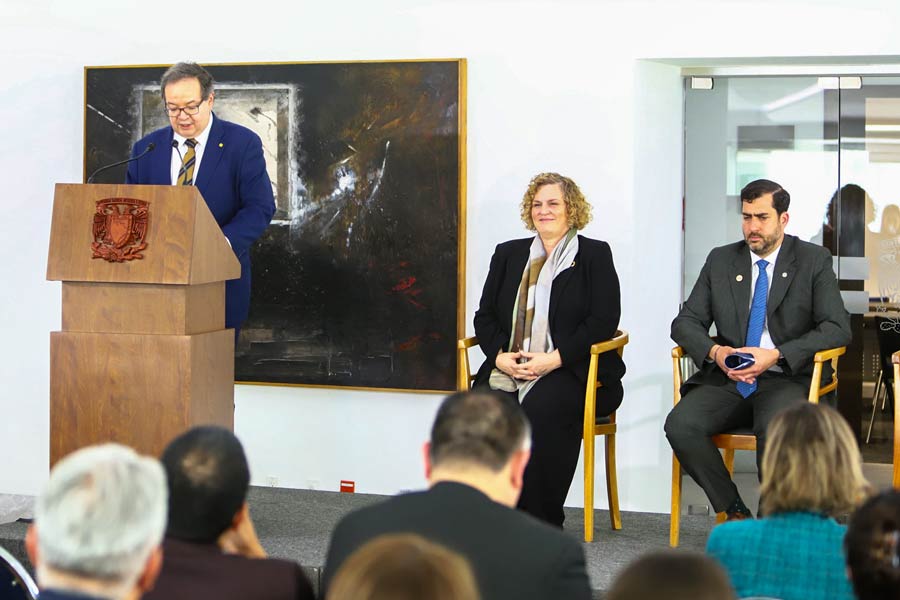
The declaration’s four core strategies
According to the declaration read by the rector of the Tec:
“The scientific evidence is overwhelming: we have to drastically reduce emissions of greenhouse gases and compounds to avoid approaching the threshold of a 2-degree rise in average global temperature.
“What’s more, we have to consider the distinct effects of the climate crisis on different populations, as well as their impact on all ecosystems. This challenge means that all sectors must participate in taking urgent action.”
According to the declaration, these 21 Mexican universities assume a key role in tackling climate change through four core strategies:
1. Education
Teaching young people to be critical, informed, and committed to building resilient societies.
2. Research
Generating and applying interdisciplinary knowledge to understand and innovate against the effects of climate change, the goal being not only to understand climate change but also to turn knowledge into specific action.
3. Culture and Community Outreach
Promoting inclusion, dialogue, and collaboration through cultural, scientific, and humanistic dissemination.
4. Institutional Management
Implementing internal sustainability strategies to reduce their environmental footprint and adapt to climate risks.
The signatory universities are as follows:
- Meritorious Autonomous University of Puebla
- Colegio de México
- National Polytechnic Institute
- Western Institute of Technology and Higher Education
- Tecmilenio
- Tecnológico de Monterrey
- Anáhuac University
- Autonomous University of Baja California
- Autonomous University of Campeche
- Autonomous University of Nuevo León
- Metropolitan Autonomous University
- University of Colima
- University of Guadalajara
- University of Guanajuato
- University of Monterrey
- University of the Caribbean
- Ibero-American University, Mexico City
- La Salle University
- National Autonomous University of Mexico
- Pan-American University
- University of Veracruz
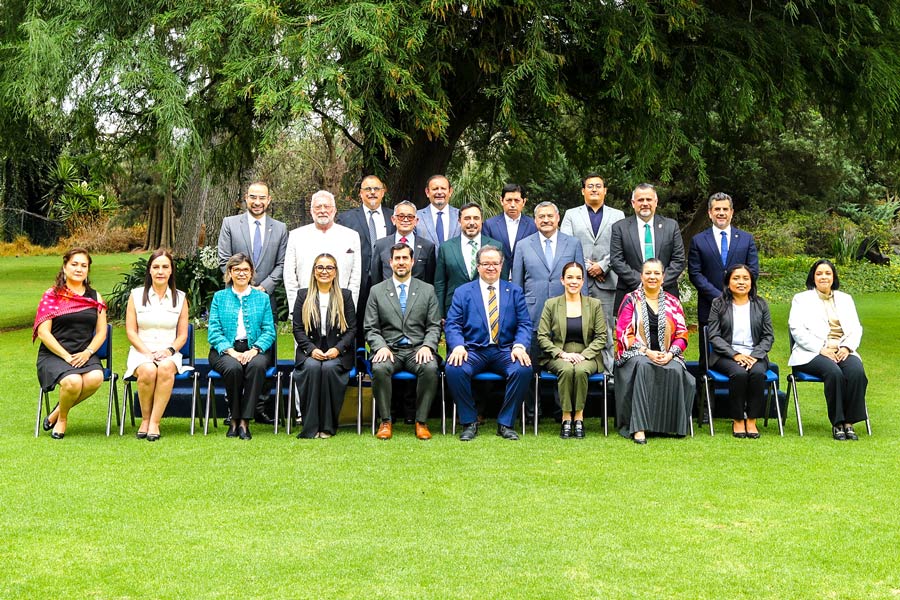
The Mexican Network of Universities for Climate Action
The event also marked the birth of the Mexican Network of Universities for Climate Action, an inter-institutional alliance aimed at coordinating academic, scientific, and community capacities to tackle the climate emergency.
This network will seek to implement a common agenda in the area of sustainability, promote good practices, and involve the educational sphere in transforming the country through a fairer, more compassionate, and sustainable model for Mexico.
According to Inés Sáenz, the Tec’s Vice President of Inclusion, Social Impact, and Sustainability, “this summit marks a milestone in the collaboration between Mexican universities to work together for climate action.”
The document emphasizes that “We urgently need to accelerate and broaden climate action, particularly at university level, promoting inclusive and egalitarian policies that respond to structural heterogeneity.”
“Hope stems from seeing what our institutions are doing. It’s a time for joining forces and maintaining the conviction that a better future is possible.” - Juan Pablo Murra
Examples of combating climate change from the Tec and the UNAM
In their speeches, the rectors of the Tec and the UNAM gave some examples of what they are doing in this regard.
For instance, the Tec’s Ruta Azul sustainability plan seeks to achieve carbon neutrality by 2040 and bolster climate-focused research.
According to Murra: “Hope stems from seeing what our institutions are doing. It’s a time for joining forces and maintaining the conviction that a better future is possible.”
Meanwhile, the UNAM highlighted the steps it is taking through the University Sustainability Coordinator’s Office, which focus on energy efficiency, mobility, waste management, and environmental education.
The universities agreed on the urgent need to move from words to deeds.
According to Lomelí, “It’s about turning declarations into specific policies, assigned budgets, rigorous evaluation mechanisms, and measurable results.”
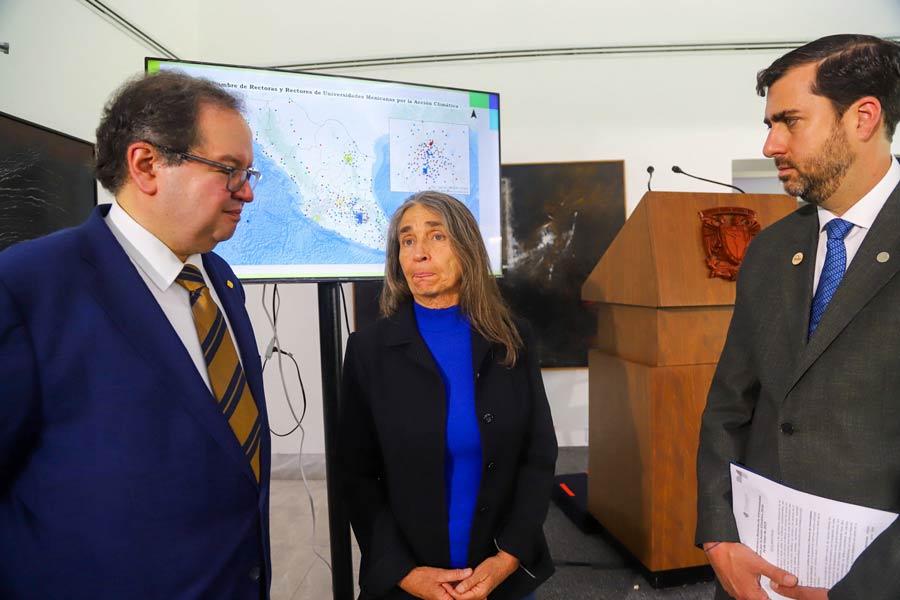
There’s still time
During the summit, Julia Carabias, an environmental researcher at the UNAM and former Secretary of the Environment, Natural Resources, and Fisheries, gave the keynote speech to rectors in which she spoke of the consequences of climate change in several areas.
Carabias gave some recommendations on how to bolster university alliances for climate action.
For example, she mentioned strengthening interdisciplinary and transdisciplinary mechanisms and institutions dedicated to tackling climate change and insisted on the need to intensify cooperation between higher education institutions.
She also spoke of the importance of sharing long-term regional projects that include academic mobility and specialized courses on climate change and global change.
“We should get involved early on, such as at high school, and ensure that all universities teach an obligatory subject on sustainable development.”
Carabias recommended establishing annual cycles of rotating conferences that strengthen climate action and awareness nationwide and spoke of the urgent need to formalize collaboration mechanisms between academia and decision makers.
To this end, she called on those present to participate in an organized fashion in the public consultations on the Nationally Determined Contributions (NDC 3.0) for COP30, as well as to review the National Climate Change Strategy and contribute to preparing the 2025-2030 Special Climate Change Program and the Adaptation Program.
What’s more, she stressed the need to evaluate results with rigor, transparency, and maximum publicity, update impact indicators, and align information systems with international standards on Monitoring, Reporting, and Verification (MRV).
She also explained that: “Young people are angry, worried, and starting to organize on behalf of climate justice. It’s a sign we cannot afford to ignore.”
Finally, she celebrated the willingness expressed by rectors to make progress on an alliance for climate action, seeing it as a promising initiative that should be encouraged.
“There’s still time.”
See the presentation from the Rectors’ Summit:
ALSO READ:

